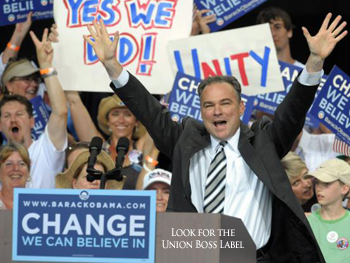Big Labor and the NY Times Hate Recall Elections (Sometimes)
If finding inconsistencies on the New York Times editorial page were a boxing match, the fight would have to be stopped especially when it comes to recall elections and big labor. Writing for The Blaze, Chris Field discovered amazing contradictions in logic by the Times when it comes to recalling governors: The New York Times and the labor unions — led by the AFL-CIO — announced their rabid opposition to the recall of a democratically elected governor. They even went so far as to label the recall effort “an unwise move with potentially damaging ramifications” being led by “wealthy, opportunistic politicians”; a plan that could create “instability”; a “rendezvous with potential political chaos”; a “hijacking of an election”; a “tangent of mischievous politicking”; a “sorry indulgence”; and a source of “mischief” — among other descriptions. Of course, their cries of woe have nothing to do with the efforts to recall Wisconsin Republican Gov. Scott Walker, whose efforts have saved the state millions of dollars and increased the protection of personal freedoms for those who don’t want to join labor unions. Their state of outrageously outrageous outrage was over the efforts to recall unpopular and failed California Democratic Gov. Gray Davis back in 2003. The New York Times editorial board believed that the recall effort was the “Wrong Remedy in California” (as the editorial headline read): Recalling Governor Davis, however, is not the answer. It is an unwise move with potentially damaging ramifications. The California Labor Federation sent a letter on Monday to the state’s Democratic elected officials alerting them to the “unequivocal position of the labor movement” on the recall.





